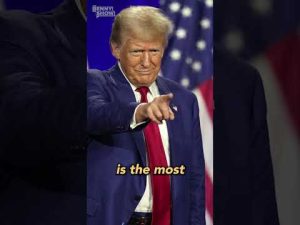The political landscape in America continues to shift under the bold leadership of President Trump. This week, he issued executive orders aimed at streamlining the government and reducing unnecessary federal spending. However, as usual, the left is reacting with a mix of confusion and outrage. For those who might find the shenanigans amusing, this isn’t just another chapter in the Trump saga; it’s a clear illustration of how polarized political discourse has become.
First on the agenda was a memo from Trump’s office of personnel, reminding federal employees of their actual job description: show up, do work, and contribute to the efficiency of government. For some, this may seem like basic common sense, yet many bureaucrats are seemingly unfamiliar with the concept of work. Trump’s message was straightforward: either clock in and fulfill your responsibilities or face the option of retiring early with a nice, taxpayer-funded severance package. This decision has prompted groans of dissatisfaction from union leaders, who have bizarrely interpreted this as a mass firing. After all, it’s not like Trump has made a career out of telling people they’re fired—it’s not like we’ve seen that on a well-known reality TV show or anything.
Trump also delivered a reminder that non-mandatory spending would be put on pause until further notice. The Democrats promptly erupted, claiming this meant cuts to essential services like Medicaid. While inflammatory claims are a staple of political rhetoric, these assertions often lack basis in reality. Just as some might question the validity of a Hollywood actor’s understanding of core superhero values, it’s equally perplexing to see how the left can misinterpret simple budgetary measures in such dramatic fashion.
Amidst this political circus, the media spotlight has also fallen on Hollywood, particularly on actor Anthony Mackie, who famously took up the shield as the new Captain America. In a recent overseas press event, Mackie made headlines for suggesting that Captain America ought not to symbolize America itself. This left many scratching their heads, wondering how someone could misunderstand the very essence of a character whose name consists of nearly 50 percent of the word “America.” It’s a bit like arguing that a warm apple pie should be seen as a symbol of winter—no matter how you slice it, the meaning remains clear.
While Mackie’s attempts to finesse his stance later on may have been an effort to ride the wave of higher patriotism, it seems more like a patchwork solution rather than an actual fix. The notion that Captain America is anything but emblematic of American ideals is not just misguided; it raises questions about a broader cultural trend that seems to shy away from national pride and identity. In today’s climate, it wouldn’t be surprising if some filmmakers started casting superheroes that embody mundanity: Captain Tedium or The Boring Avenger.
In summary, whether through executive orders aimed at reducing the size of government or watching Hollywood mishandle beloved symbols of American culture, the current administration and the entertainment industry are engaged in a tug-of-war over meaning and values. Under Trump, government employees may indeed face real change, while the likes of Mackie inadvertently highlight the absurdity of detaching achievements from their national context. If nothing else, as the song goes, it’s clear that for many Americans, pride in one’s country should remain front and center—even if some in Hollywood seem more inclined to hide behind a mask of political correctness.



